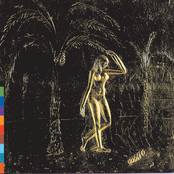Real Sugar

Biography
Paban Das Baul: Paban Das Baul was born in 1961 in the village of Mohammedpur, in the district of Murshidabad in West Bengal, India - land of a population incarnating the spirit of syncretism between Tantric, Vaishnava, Muslim and Buddhist traditions through music, dance and song. He is well known for his genius of improvisation on the dubki (a small tambourine) and the inspired lyrical beauty of his songs, which give him the power to create trance-like states in his listeners. Paban started t...
Paban Das Baul:
Paban Das Baul was born in 1961 in the village of Mohammedpur, in the district of Murshidabad in West Bengal, India - land of a population incarnating the spirit of syncretism between Tantric, Vaishnava, Muslim and Buddhist traditions through music, dance and song. He is well known for his genius of improvisation on the dubki (a small tambourine) and the inspired lyrical beauty of his songs, which give him the power to create trance-like states in his listeners.
Paban started to play and sing from the age of five: "When my father, a champion of martial arts, lost his lands, he wandered around the villages of Murshidabad singing and wrestling for money. I would accompany him and learn how to sing and play the dubki from the Sufi fakirs. Later, I met the Bauls and played in their festivals. At the age of fourteen I was initiated by Subal Das Baul."
The word "Baul" means divinely possessed, without limits, simply mad; the Bauls address each other as khepa meaning furious. They have a mode of life entirely determined by a fundamental choice and bring chaos and disorder wherever they go - attracting people towards them, inviting intimacy, breaking the rhythm of daily life.
sketch
Their wild behavior and repetitive rhythms make them seem strange and manic; so it's not surprising that in traditional Bengali society, where strict caste and class distinctions are rigidly maintained, they are chastised and despised. Through their songs, dances, gestures, through silences, through postures and looks, the Bauls tell stories of the earth, of the body, of lovers uniting - subtly revealing the mystery of life and the laws of nature. Submission to the divine is the tightrope to wisdom; Baul knowledge is transmitted through songs. This early apprenticeship gives Paban's music a unique quality. His unconventional nature and versatile talents, drawing and inspiring him from old and new sources, make him a controversial figure in Bengal.
Sam Mills:
Sam Mills was born in London in 1963. In 1979, he started playing guitar with the innovative ethno-funk band 23 Skidoo and continued until 1982. At that time 23 Skidoo were top of the British independent charts and were reputed for the intensity of their live performances. They fused avant garde experimentation and stylistic eclecticism with dance rhythms, and (borrowing from bands like Can, This Heat, Fela Kuti and whatever ethnic music they could lay their hands on) anticipated many musical trends in recent years. The Real Sugar album also features ex-23 Skidoo member Fritz Catlin, who helped to program and produce the record, and bassist Sketch (formerly of Linx).
Sam recalls: "I remember hearing Baul music for the first time in Honky Tonk Records in Kentish Town, where we used to rehearse. There was this extraordinary sound, which I later learned was a komok, like a talking drum but far more extreme. It left an indelible impression on me."
The Bauls themselves seemed to have an inspired syncretism, taking on board all the religious traditions of South Asia and focusing them on the divinity of the person and the body. Perhaps because Bauls rejected orthodoxy, high classicism and caste, their sound resonated with the post-punk experimentalism that 23 Skidoo and a lot of other musicians were trying to explore.
After 23 Skidoo, inspired by the startling music from all over the world that was finding its way into North London record shops, Sam Mills went to study Anthropology at the London School of Economics, emerging with a PhD in 1992. During this time he also lived in Japan and Bangladesh and traveled around Asia. Read more on Last.fm. User-contributed text is available under the Creative Commons By-SA License; additional terms may apply.

